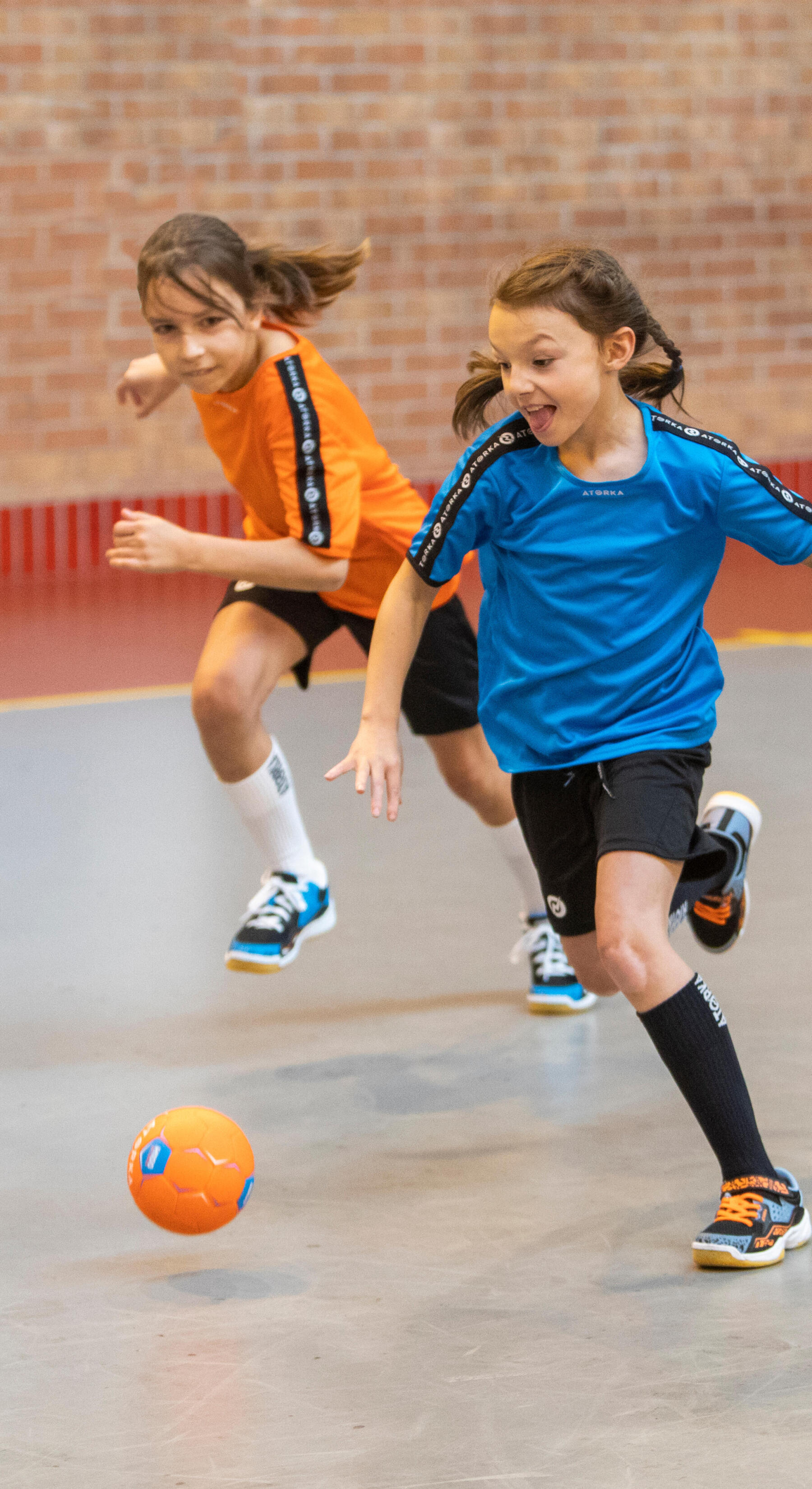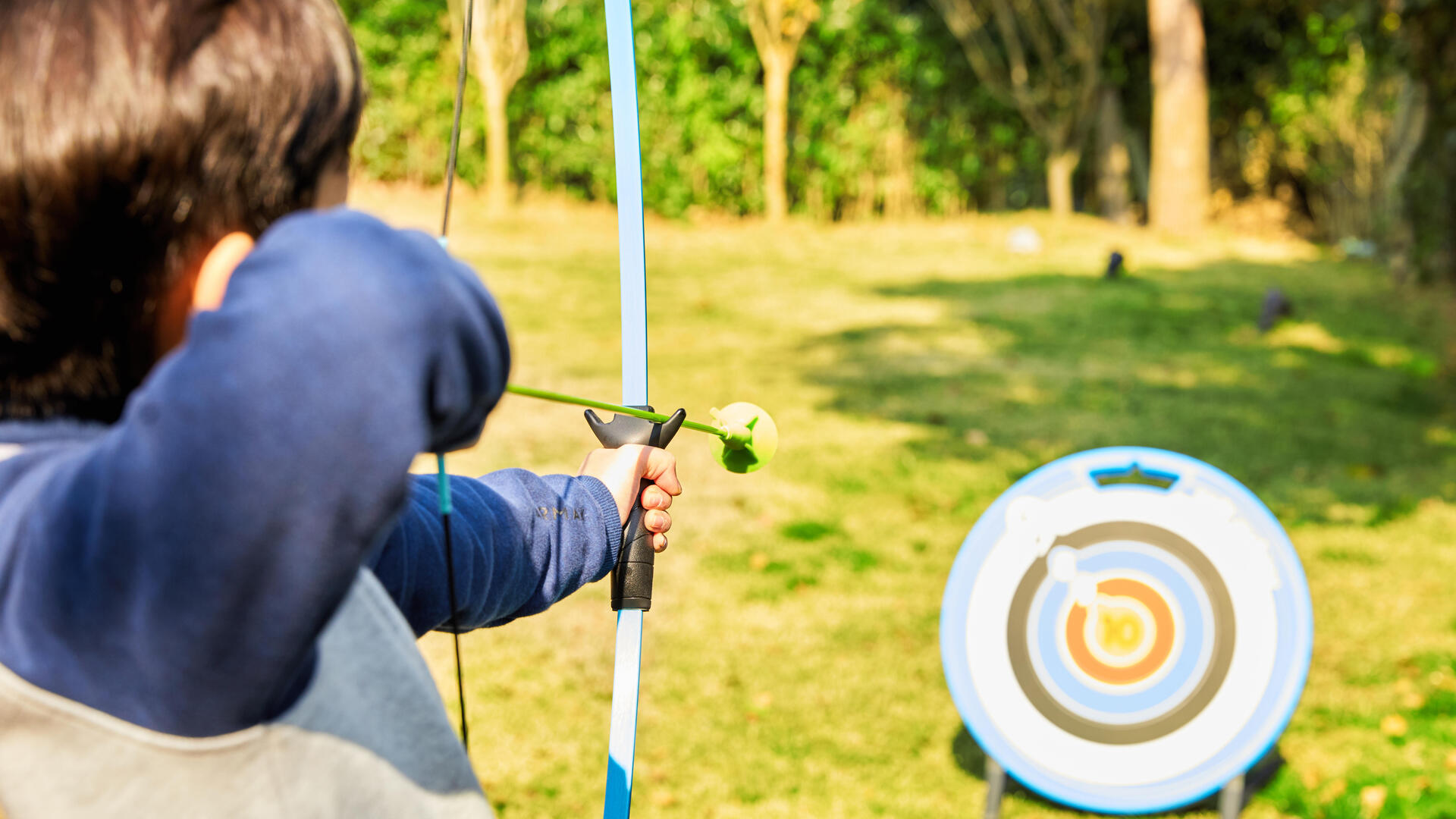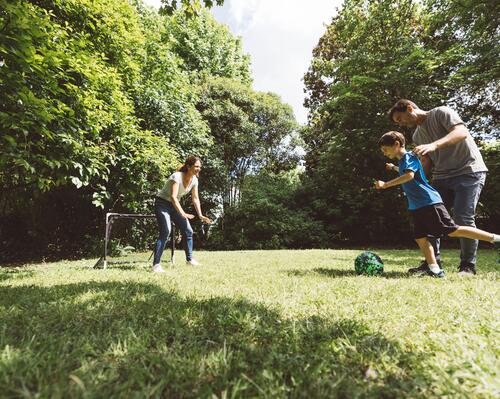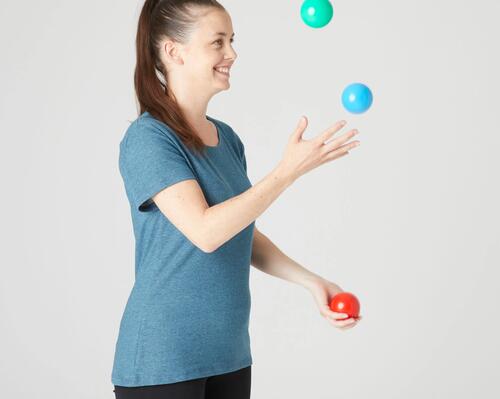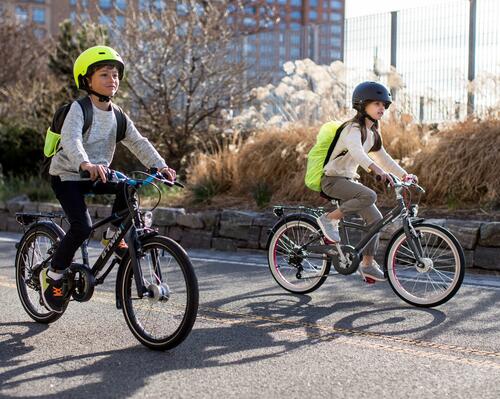Sport: the benefits
For kids and teens, the WHO recommends at least 60 minutes of moderate- to high-intensity physical activity each day (30 minutes twice a day, for example). This can include movement, games, school or family sports, recreational activities, and if you're lucky, chores.
Why?
Because sports improve cardio-respiratory endurance, meaning that they promote heart and lung development. Muscles and bones get stronger, joints are stimulated, the immune system is boosted, and weight gain is limited. Their coordination work gives them more control over their movements. Basically, they're stronger and in better shape!
Individual or team sports?
It doesn't matter! When practising a sport, kids develop social connections: Sports allow kids to express themselves, build self-confidence, improve self-esteem, learn to follow rules, create interactions, and become more tolerant (being a team player). Not to mention that sports often encourage a healthier lifestyle: kids will often avoid tobacco, alcohol, and drugs.
Sports, good for your morale
Sports have a real effect on the health of our kids, and - good news! - also help with their morale. The hormones synthesized during and after physical activity allow them to see life in a more positive light thanks to the production of serotonin, the happiness hormone, which helps to fight anxiety and depression. Ever catch them whistling on their way out of their fencing class? Now you know why!

